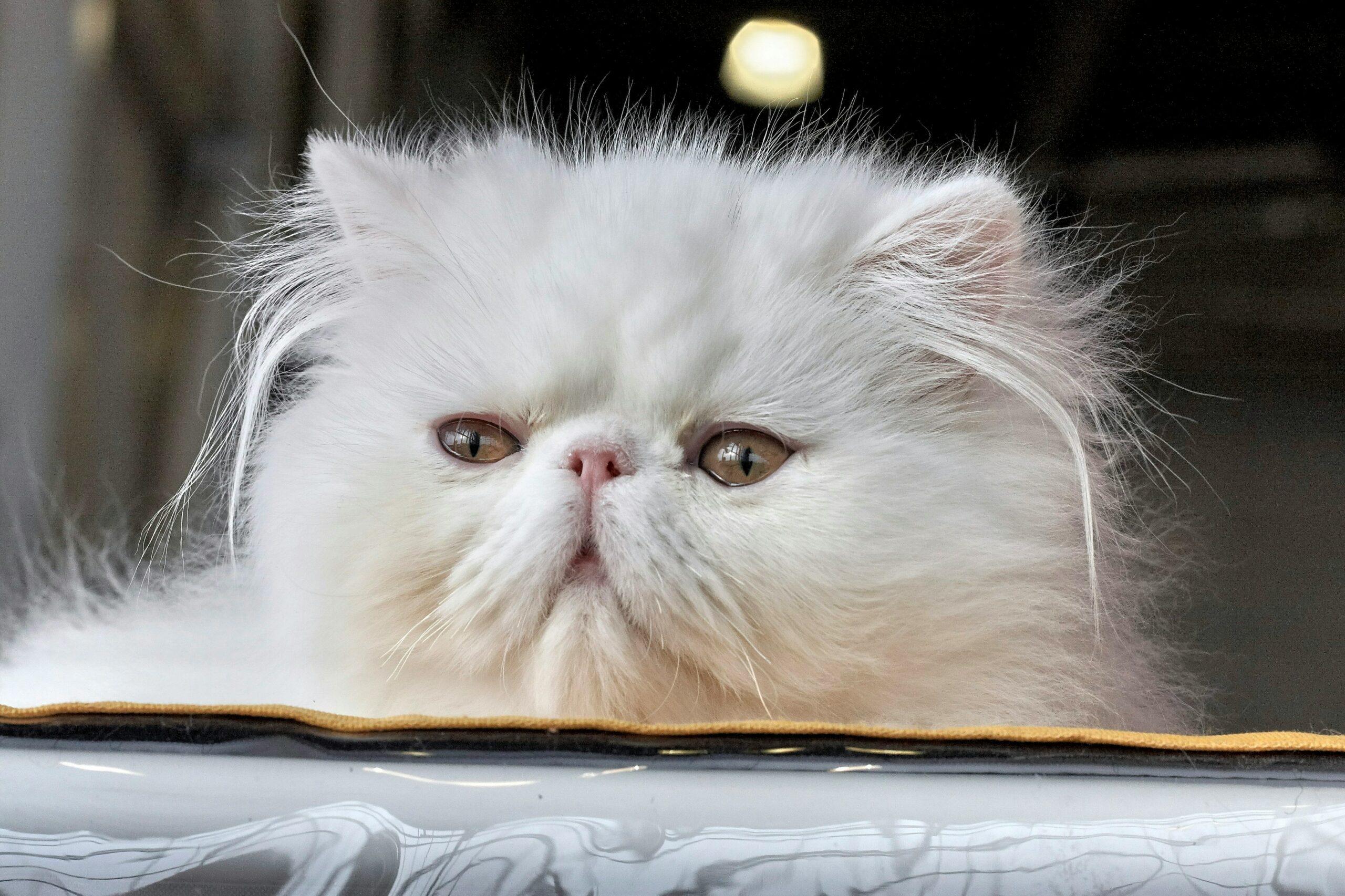
Charity says breeders should prioritise health and welfare over looks or status
The number of pedigree cats coming into RSPCA rescue centres has soared since 2018 – with more ‘designer’ and ‘purebred’ cats being rescued than ever before.
The charity believes this is in large part due to their popularity on social media, in film and TV, and their use in advertising.
The most common pedigree cat in RSPCA care is the Persian cat with the charity seeing a 92% increase since 2018. The second most common is the Ragdoll with a 61% increase in these cats arriving at RSPCA animal centres and branches, while there has been a 22% increase in Bengal cats and a whopping 300% increase in Maine Coons over the last six years.
These latest figures come as new spy action comedy Argylle is due to be released this month which stars a Scottish Fold cat who is seen in the movie trailer being carried around in a bubble backpack. Last week, leading charities, including the RSPCA, wrote to the film studio to urge them not to glamourise these kinds of cats in future due to the health and welfare issues they suffer from.

Alice Potter, cat welfare expert at the RSPCA, said: “Over the last few years we have seen an increase in certain cat breeds coming into our care as a result of ‘designer’ breeds becoming more popular with owners.
“Sadly, many of these cat breeds have exaggerated physical features, some of which have become so extreme that they can cause pain and suffering. Some can make cats prone to particular disorders, and some prevent them from behaving normally.
“Persian cats are bred to have ‘flat-faces’ which often causes them to have brachycephaly which means they struggle to breathe, sleep and even give birth.
“Scottish Fold cats, as featured in the new film Argylle, have a genetic disorder that causes them severe and painful lameness. This is because the cartilage abnormality responsible for their distinctive folded ears also affects joints meaning they can develop painful arthritis, even from a young age.
“Although we have only had seven Scottish Fold cats come into our care since 2018, we fear that this film may glamourise these cats and could be the latest breed to experience a boom in their popularity, without people realising the sometimes severe issues these cats can face.”
The Scottish Government has put in place guidance for breeders of Scottish Fold cats (pictured above), and other cats who have been bred with exaggerated features, to ensure the health and welfare of the cat is not being compromised. The RSPCA wants to see similar guidance issued in England and Wales too.
The RSPCA also wouldn’t recommend that backpacks are used to transport cats as cats naturally hide or try to run away when they feel stressed or scared – but this instinct could be restricted when they are contained inside these clear bags. The charity advises owners to monitor their cats for any signs of stress when introducing them to new or different experiences but this becomes very difficult when cats are travelling on their owners backs. These backpacks are also often small, very restrictive and interfere with temperature regulation.
Alice added: “We strongly believe that all those who breed cats should prioritise health, welfare and temperament over appearance when choosing which animals to breed, in order to protect the welfare of both the parents and offspring.
“We know owners want their pets to be happy and healthy, and people may not realise that cats bred with exaggerated features can struggle with extremely serious health problems. We would like to see breeders doing more to ensure they are producing kittens who are happy and healthy.
“We encourage anyone wanting to add a cat to their family to visit one of our centres and rescue a cat in need of a loving home instead.”
The RSPCA has lots of cats in their care looking for their forever homes. You can meet some of the lovely cats waiting for new homes on the RSPCA website: www.rspca.org.uk/findapet.
Photos by Sergey Semin on Unsplash

